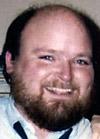John Armstrong leaves legacy for disabled students at UW

John S. Armstrong came to the University of Washington in 1968 and essentially never left.
As a student, then as a longtime employee and finally with a scholarship in his name for students with disabilities, Mr. Armstrong's influence will last. So will memory of his grace in the face of tremendous obstacles, friends and colleagues say.
Mr. Armstrong, a staunch advocate for people with disabilities, died March 5, at age 56. He lived longer than might have been expected.
At 18 months old, Mr. Armstrong contracted polio, an illness that left him unable to move anything but his left hand and his head. Given the seriousness of his disability, it wouldn't have been unusual for him to grow up in an institution. But his family wouldn't stand for it.
"His parents wanted him to have as normal a life as possible," said Roger Drake, a friend since eighth grade. "They mainstreamed him before they called it that."
Growing up in Poulsbo, Kitsap County, Mr. Armstrong wanted to be "one of the guys" — and largely succeeded, Drake said. He was sports editor for the school paper, a student manager for the baseball team, and he sang in the choir, Drake said.
He loved road trips, camping and once climbed Blue Mountain in the Olympics in his wheelchair.
"Just doing that is a heck of a commitment," Drake said, "and he succeeded. That's one of the reasons he's my hero."
Mr. Armstrong graduated from the UW in 1972 with a bachelor's degree in social welfare and quickly landed a job as a student adviser in the school of social work.
He later became the school's director of admissions, a post he held until retiring in 2004. While there, Mr. Armstrong interviewed hundreds of prospective students.
"When people first saw him they might have shrunk back," recalled Bill Berleman, retired director of the bachelor's-degree program there. "The thing was he was so good at meeting you in a low key and friendly way that in short order you would have forgotten he was as disabled as he was."
Many people seeking a degree in social work have lived difficult lives, Berleman noted, and often they would get teary recounting their travails to Mr. Armstrong.
Patient and compassionate — despite his own very serious difficulties — he would push a box of Kleenex toward them and listen.
That patience and understanding carried over to his private life, as well.
Jeanette Murphy, executive director of the Washington Coalition of Citizens with disAbilities, said Mr. Armstrong spent a few years on the organization's board and made fellow board members understand what it means to really live with a serious disability.
"He had the wisdom of somebody who has been disabled for a long time," she said.
Mr. Armstrong also helped disabled kids understand what they could accomplish through a program for high-schoolers.
"The kids didn't even blink," Murphy said, "because here sitting before them was a very successful person with a disability."
Though Mr. Armstrong was a great advocate for people with disabilities living independently, he didn't want to call attention to his own problems.
"He didn't like hearing he was brave because that was like a barrier, saying he was different," Drake said. "If you treated him the way he wanted to be treated, the next thing you know you might forget he had a lot more bad luck than anybody else."
In addition to the scholarship fund left by Mr. Armstrong to the UW, the Washington Coalition for Citizens with disAbilities created a memorial fund in his name.
Mr. Armstrong was preceded in death by his parents, Jack and Doris Armstrong, and is survived by brothers Terri Dorian and Tom Armstrong and his uncle Robert Armstrong.
A memorial was held for Mr. Armstrong last week.
Maureen O'Hagan: 206-464-2562 or mohagan@seattletimes.com